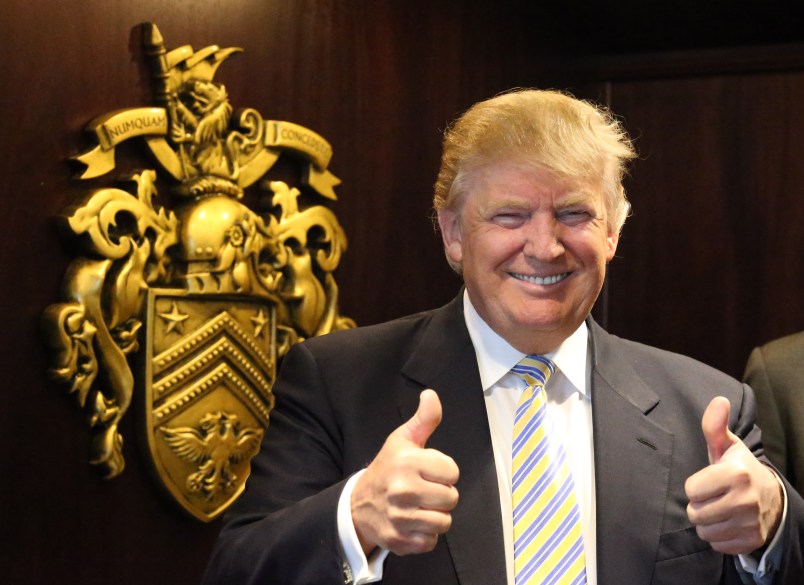TPM reader JG adds some details to my suggestion that Trump may be refusing to divest himself of his business because he can’t. As JG suggests, the issue is likely not cash flow per se. But creditors often require cash flow to service debts. As a condition of borrowing he may have agreed not to divest himself of certain properties.
I’m a (very) longtime reader, and a corporate lawyer. I agree with your story today regarding the possibility that Trump can’t divest. It occurred to me right after the election that it would be impossible for Trump to sell if the companies were valued less than their debt, and that it would be very unattractive for him to sell if the companies were highly leveraged, because he’d have to pay off debt and could be left with very little of the proceeds. I still think this is a likely explanation.
I don’t think liquidity concerns at the companies would, by themselves, prevent him from selling (liquidity would become the buyer’s problem). But I do agree that his June stock sale suggests his companies are highly leveraged and that he doesn’t have much free cash personally. Credit agreements typically require the borrowing company to use its available cash to pay interest and/or repay debt, and prevent dividends to shareholders if the dividends would exceed a particular amount or cause the company to fail some financial metric (usually based on available cash or shareholders’ equity). Those restrictions normally are a lot less significant where the borrowing company has solid cash flow and/or does not have a lot of debt.
It may be that the sweet spot for Trump to sell would be during the first year of his administration, when the values of his businesses have inflated due to some combination of his policies and the association with him, and a buyer could reasonably benefit from the association with him for at least three years. He could pass it off as trying to put the conflict behind him. Look for the buyer to get a right to continue to use his name — and perhaps other rights/promises that we’ll never know about. I wouldn’t expect all of the deal documents to be made public.
Just to be clear: I’ve never had any direct or indirect contact with Trump and don’t have any knowledge regarding his or his companies’ affairs that isn’t based on public news reports.






